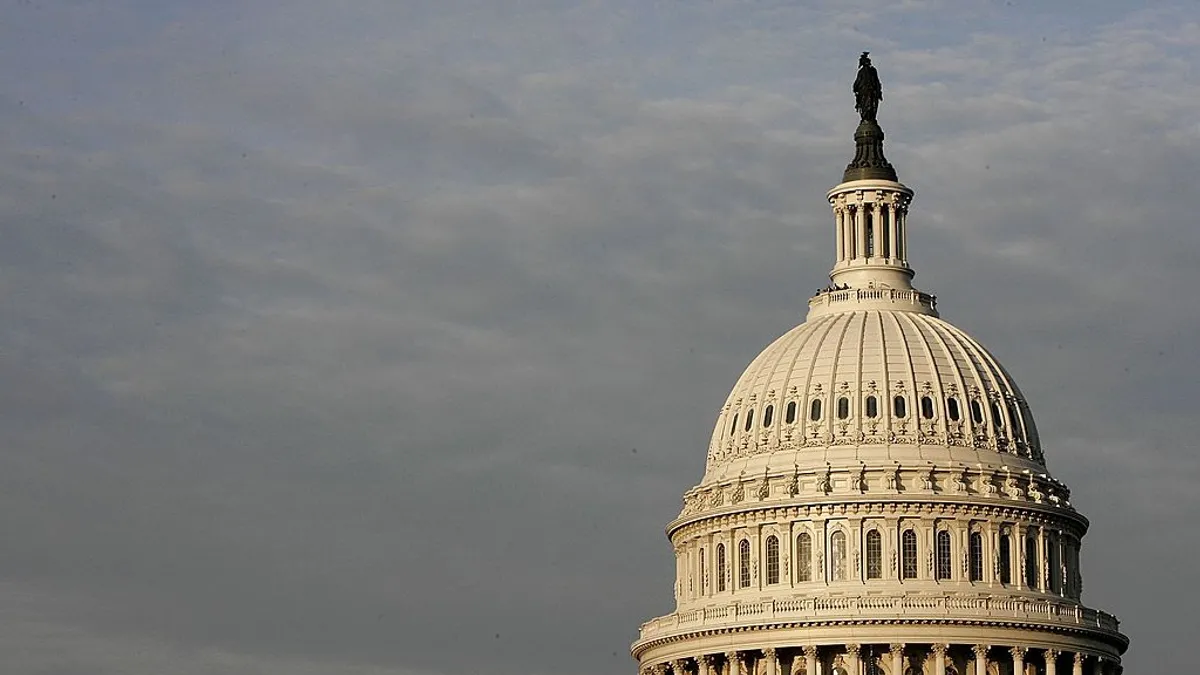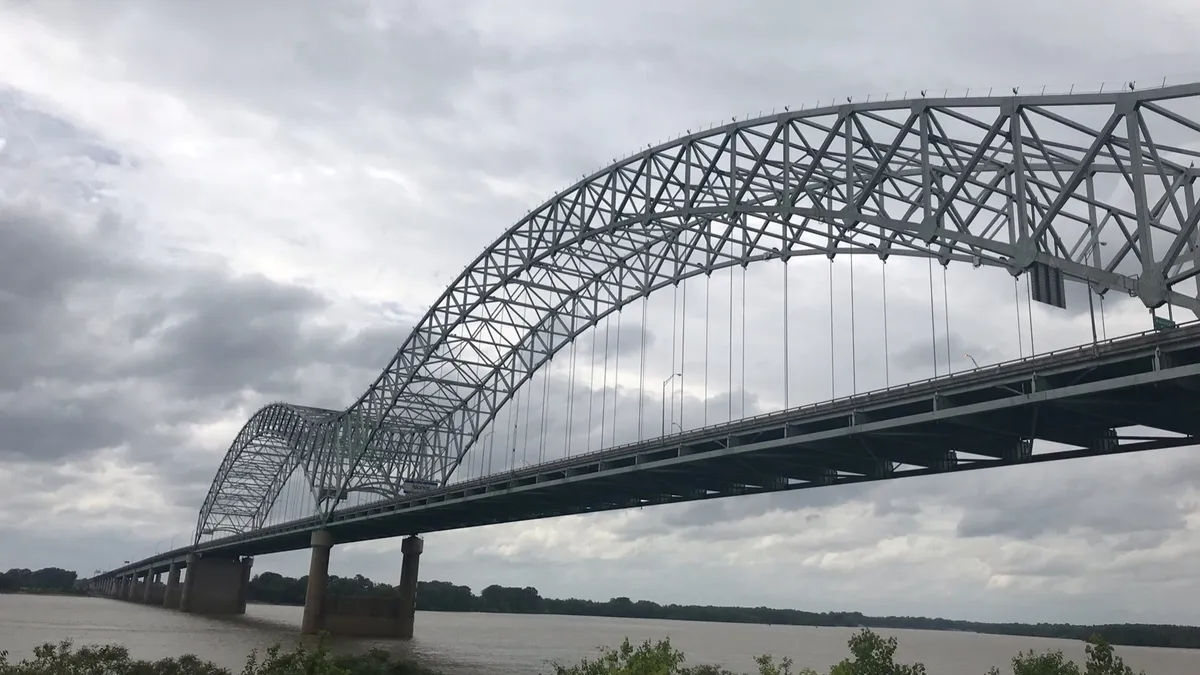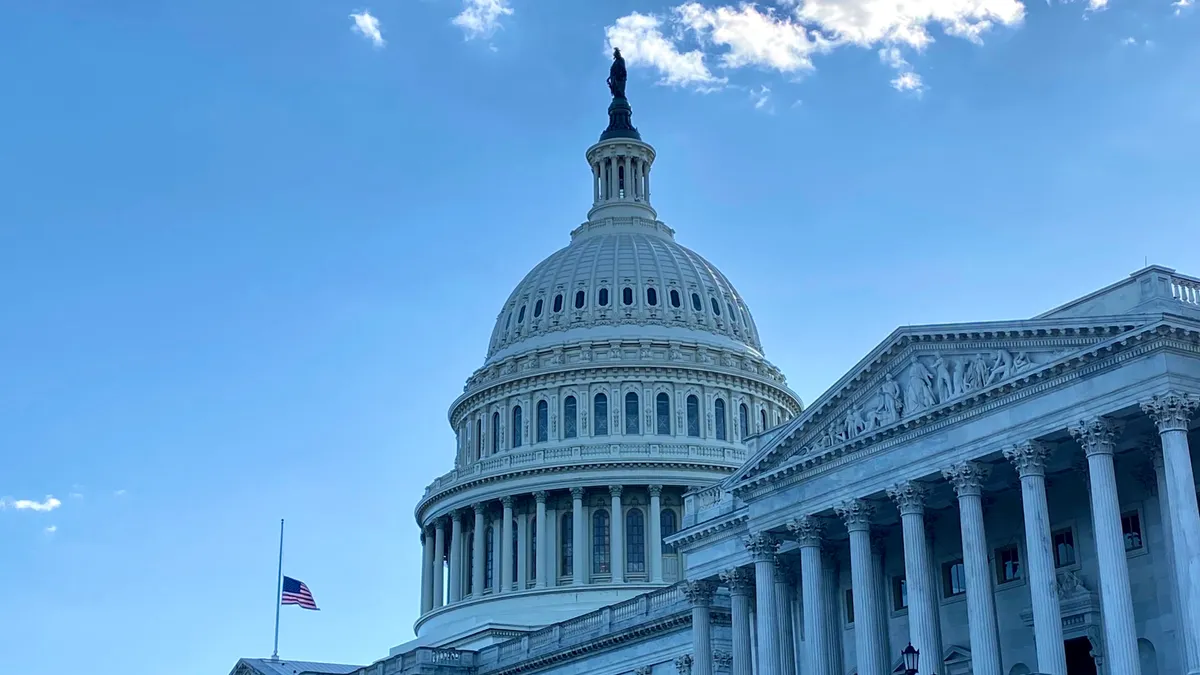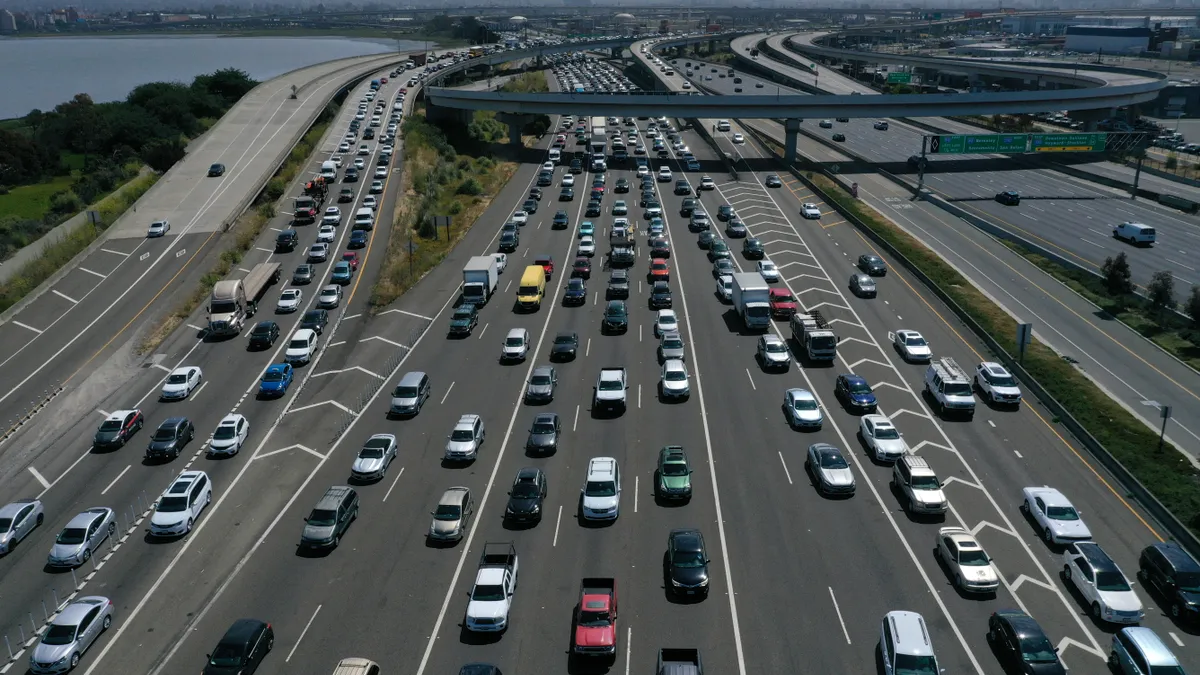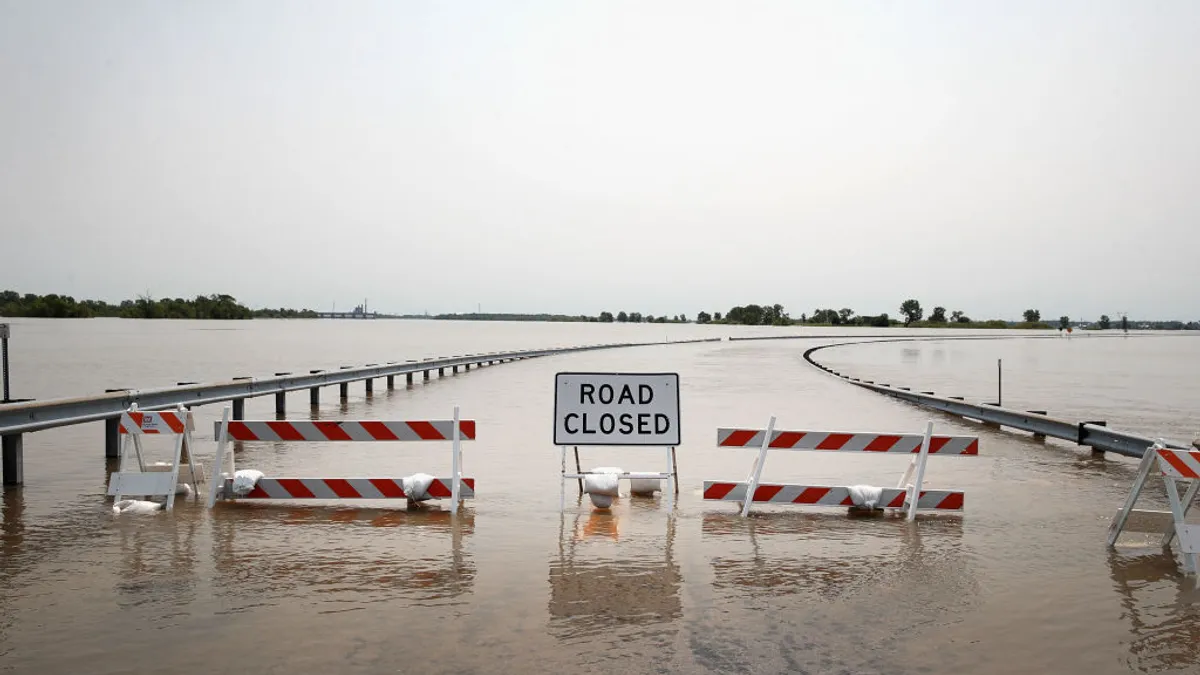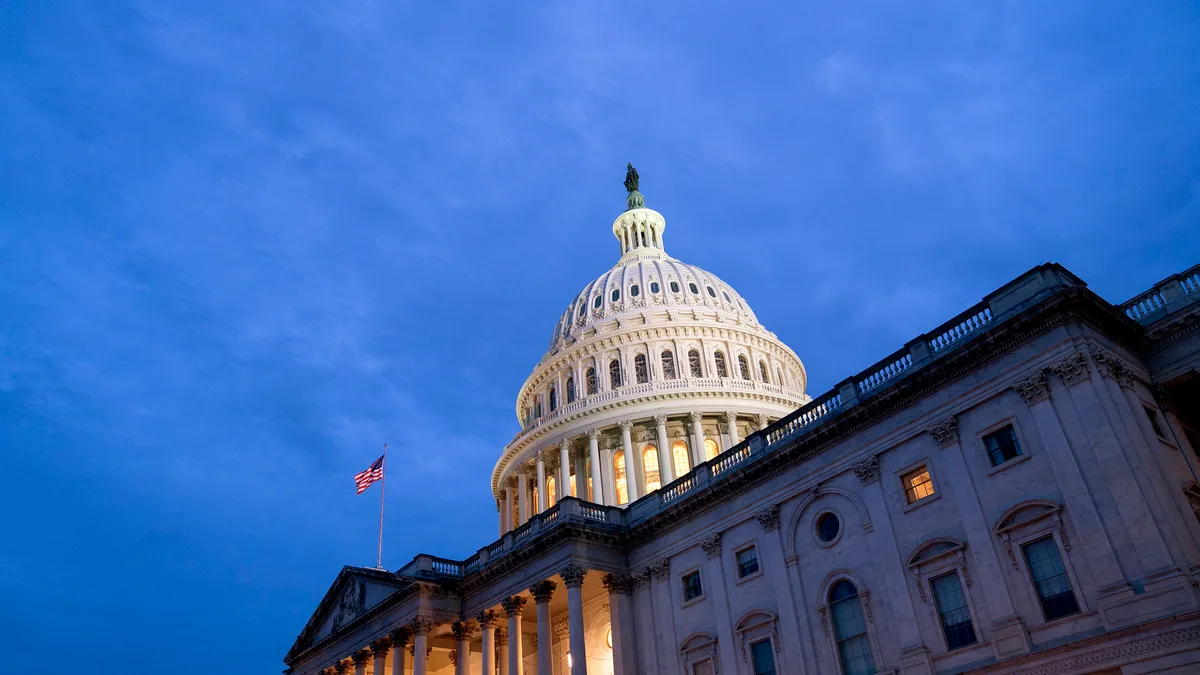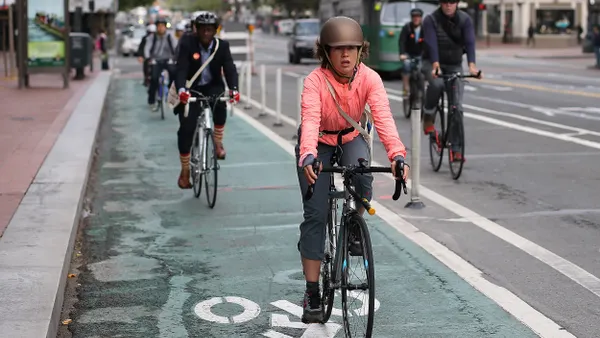Dive Brief:
- As leaders in Washington move ahead with President Joe Biden's plans to pass a comprehensive infrastructure package, a recently introduced bill from House Democrats would dedicate $1.1 billion for smart cities projects over five years.
- The Smart Cities and Communities Act would provide technical and financial resources to local governments to implement smart city technology, especially in suburban and rural communities. It would also improve federal management of smart cities programs through coordinated reporting on the utility of new technologies.
- "Investing in emerging smart city technologies is one of the biggest opportunities for our nation to remain the world's unmatched leader in innovation," said Rep. Suzan DelBene, D-Wash., in a statement. DelBene introduced the bill along with Rep. Yvette Clarke, D-N.Y.
Dive Insight:
This is the third time the smart cities bill has been introduced in recent years. It has failed to advance in previous sessions, although some of its provisions were included in the Moving Forward Act, the sweeping transportation and infrastructure bill that passed the House in 2020. That bill did not advance in the Senate.
This session, the smart cities bill could move as part of the infrastructure packages under debate on Capitol Hill. The White House announced an agreement last week with a bipartisan group of senators on a $1.2 billion, eight-year infrastructure plan, with $312 billion in new transportation spending. The framework — which has not been fleshed out in detail — would also spend $65 billion on broadband infrastructure.
DelBene spokesman Nick Martin said the office is "pretty confident" they can include some elements of the act in an infrastructure bill. There has been discussion of moving a second infrastructure bill through the reconciliation process, which only requires a simple majority in the Senate and could be an avenue for Democrats to include more policy priorities.
"As the nation focuses much needed attention and resources on rebuilding the infrastructure, it is important that we utilize today's technology best practices and solutions to enhance the overall resiliency of our infrastructure," said Steve Crout, director of policy and resilience programs for the Smart Cities Council, in an email interview.
"The Smart Cities and Communities Act will help promote the development of smart cities in several ways including providing funding for smart cities technology demonstration programs, providing funding to develop the smart cities workforce, coordinating and making available the vast technical resources of the federal government to cities and communities, and facilitating the development of smart cities standards and interoperability, among others," Crout continued.
While many large cities have invested heavily in wireless equipment, traffic monitors and environmental sensors, among other smart cities equipment, some smaller communities and rural areas may lack the budget or expertise to adopt the technology, according to experts. The bill is designed to close that gap, helping all communities purchase and leverage smart tools. The bill also contains workforce training and encourages international collaboration.
The bill would create a cybersecurity task force as well to develop tools for cities to stay safe as cyber attacks against municipal governments and utilities have increased. It would also require that governments tighten privacy language, a key issue as new sensors and data tools are installed.
Although it has been a bicameral bill in previous versions, a Senate version has not been introduced.


